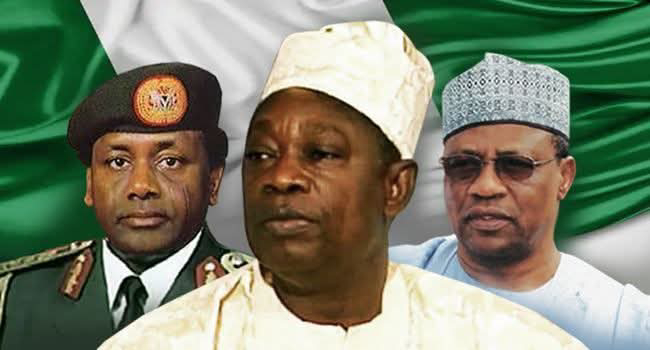On June 8, 1998, around 7pm, I was in a commercial bus inside Enugu, shortly after 18 Bus Stop, Abakaliki road, the news of the death of Gen. Sani Abacha filled the air. General Sani Abacha, who had ruled Nigeria as a military dictator since 1993, died suddenly on June 8, 1998. Eyewitnesses reported that he was found dead in his chair, with an inhaler for asthma on the floor, suggesting a possible heart attack.
Everywhere seemed jubilant. In Lagos, the news was met with a mixture of disbelief and cautious optimism. While some Nigerians hoped for a transition to democracy, others feared potential instability and power struggles within the military. By the special grace of God and the ingenuity of the likes of Abacha's Chief Security Officer, Major Hamza Al-Mustapha, there was a smooth manoeuvre of power to Gen. Abdusalam Abubakar. Life continued and Nigerians were literally going about their normal business until one month later.
On July 7, 1998, MKO Abiola, the acclaimed winner of the annulled 1993 presidential election, died under suspicious circumstances just hours before his scheduled release from detention. He had been imprisoned for declaring himself president following the annulment. In Lagos, the news of Abiola's death sparked widespread protests and unrest.
That fateful evening, I was going to Lagos in a Volvo Macopollo operated by Ifesinachi Motors, from Abakaliki, Ebonyi State. We had just arrived and were on final approach to Yaba, when the pandemonium ensured. Demonstrators clashed with police, leading to the deaths of many in Lagos and Abeokuta. Protesters accused the military government of murder, while some international observers, found no evidence suggesting an unnatural cause of death.
In the middle of the chaos our driver managed to manoeuvre the many bonfire and returned to Ijegbu Ode where we waited till the coast was clear and the dust all settled before returning to Lagos.
While the former sparked mixed feelings and jubilations of sort in some quarters, the later triggered a widespread demonstrations in the west occasioning what was later christened 'Abiola Race' (Oso Abiola). It was a nationwide brouhaha where everyone was on helta-skelta. Many lives were lost in the heat of the commotion which marked significant turning points in Nigeria's political history, leading to a period of uncertainty and eventual transition to civilian rule.
Some questioned in some quarters why June 12 was singled out as Democracy Day in Nigeria, asking what becomes of the other democratic dispensations of the first and second republics?
It is worthy of note that June 12 marks a key turning point — the fight against military interference in democratic processes.
While the earlier 1st and 2nd republics laid foundational democratic structures, June 12 symbolizes the deeper, more hard-fought democratic awakening in Nigeria. It commemorates the aspiration for a truly representative government and the resilience of Nigerians in defending democracy.
While we hope for the justification of the sacrifices that culminated to the present day administration, may the labour of our heros past not be in vain. Amen.
Anthony Nwizi copyright reserved.
June 12, 2025.













